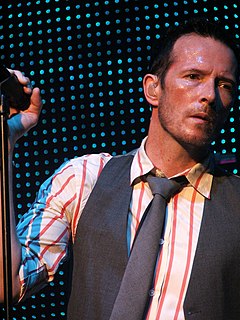A Quote by Maya Forbes
It's very painful to love someone who is wrestling with either an addiction or a mental illness because you want the best for them. And it seems so hard, and it's frustrating.
Related Quotes
"You know, I've wondered if it's more painful to lose someone you love to death or to lose someone you love because she no longer loves you back." "I don't know," I said. "On the surface, it seems an easy question. It should be so much easier to lose someone who doesn't love you, because why would you want to be with someone who doesn't want you? But rejection's not an east road. A part of you always wonders what makes you so unlovable."
The very term ['mental disease'] is nonsensical, a semantic mistake. The two words cannot go together except metaphorically; you can no more have a mental 'disease' than you can have a purple idea or a wise space". Similarly, there can no more be a "mental illness" than there can be a "moral illness." The words "mental" and "illness" do not go together logically. Mental "illness" does not exist, and neither does mental "health." These terms indicate only approval or disapproval of some aspect of a person's mentality (thinking, emotions, or behavior).
Romantic love is mental illness. But it's a pleasurable one. It's a drug. It distorts reality, and that's the point of it. It would be impossible to fall in love with someone that you really saw. The second you meet someone that you're going to fall in love with you deliberately become a moron. You do this in order to fall in love, because it would be impossible to fall in love with any human being if you actually saw them for what they are.
Like Sylvia Plath, Natalie Jeanne Champagne invites you so close to the pain and agony of her life of mental illness and addiction, which leaves you gasping from shock and laughing moments later: this is both the beauty and unique nature of her storytelling. With brilliance and courage, the author's brave and candid chronicle travels where no other memoir about mental illness and addiction has gone before. The Third Sunrise is an incredible triumph and Natalie Jeanne Champagne is without a doubt the most important new voice in this genre.
When you have mental illness you don't have a plaster or a cast or a crutch, that let everyone know that you have the illness, so people expect the same of you as from anyone else and when you are different they give you a hard time and they think you're being difficult or they think you're being a pain in the ass and they're horrible to you. You spend your life in Ireland trying to hide that you have a mental illness.
I meet a lot of young people that want to go into acting because they think of what it will do for them. If that's the case, it can be a very, very painful profession. But if the kids want to do acting because they love it, and they want to give to it, then they can have a great life. It's really about as simple as how you look at it.
Once and for all, people must understand that addiction is a disease. It’s critical if we’re going to effectively prevent and treat addiction. Accepting that addiction is an illness will transform our approach to public policy, research, insurance, and criminality; it will change how we feel about addicts, and how they feel about themselves. There’s another essential reason why we must understand that addiction is an illness and not just bad behavior: We punish bad behavior. We treat illness.
The world's a hard place, Danny. It don't care. It don't hate you and me, but it don't love us, either. Terrible things happen in the world, and they're things no one can explain. Good people die in bad, painful ways and leave the folks that love them all alone. Sometimes it seems like it's only the bad people who stay healthy and prosper. The world don't love you, but your momma does and so do I.
Punishment by definition isn't going to help. So what you need to do is to help people to change and recover is to help them find different areas of passion and help them find better ways of coping. Because about 50 percent of people with addiction have a preexisting mental illness, about two-thirds have had some type of severe trauma during childhood, and they are not using to the point where they're risking their lives because it's fun. They're doing something to help them cope.





































